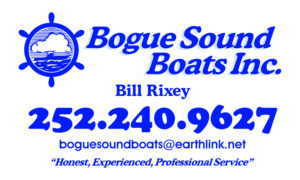Boating Safety
Boating offers an exhilarating way to explore the water, whether for recreation, fishing, or relaxation. However, with great adventure comes great responsibility. Boating safety is not just about following a few guidelines—it’s about cultivating a mindset of preparedness, awareness, and respect for the water. A responsible boat owner understands that safety is the foundation of an enjoyable and stress-free boating experience. Whether you’re new to boating or a seasoned sailor, understanding and adhering to boating safety rules can prevent accidents, protect lives, and ensure smooth sailing for everyone on board.
In this article, we’ll cover the fundamental boating safety rules every responsible boat owner must follow, including how to navigate changing weather conditions, essential safety equipment, common mistakes to avoid, and how to build lifelong habits for safe boating. By the end, you’ll be equipped with the knowledge to transition from a novice to a pro, ensuring every trip is as safe as it is enjoyable.
The Golden Rules of Boat Safety: What Every Responsible Boat Owner Must Follow
A responsible boat owner never sets sail without following the golden rules of boating safety. These core principles are the foundation of safe boating and should be ingrained in every boater’s routine.
- Always Wear a Life Jacket – The most basic yet essential rule of boating safety is to ensure that every person on board wears a U.S. Coast Guard-approved life jacket. Drownings are the leading cause of boating fatalities, and many of these tragedies could be prevented with proper life jacket usage.
- Never Operate a Boat Under the Influence – Just like driving a car, boating while impaired by alcohol or drugs is not only illegal but extremely dangerous. Impairment slows reaction times and impairs judgment, increasing the risk of collisions and accidents.
- Complete a Boating Safety Course – Education is key to boating safety. Completing a boating safety course can provide valuable knowledge on navigation rules, emergency procedures, and best practices to ensure you are well-prepared for any situation.
- Know and Follow Navigational Rules – Understanding the “rules of the road” on the water is critical. Learn the right-of-way rules, speed limits, and local regulations to ensure safe navigation and avoid collisions with other vessels.
- Conduct Pre-Departure Safety Checks – Before heading out, perform a thorough safety inspection of your boat. Check fuel levels, engine performance, navigation lights, communication devices, and all required safety equipment. A well-maintained boat is a safe boat.
By adhering to these golden rules, boat owners can significantly reduce risks and ensure a safe, enjoyable experience for everyone on board.
Weather, Waves, and Warnings: How to Navigate Changing Conditions with Confidence
Weather conditions can change rapidly on the water, and being prepared is essential for boating safety. Understanding how to assess and respond to weather changes can mean the difference between a smooth trip and a hazardous situation.
- Check Weather Forecasts Before Departure – Always review weather forecasts before setting sail. Pay attention to wind speed, wave height, storms, and temperature changes. NOAA (National Oceanic and Atmospheric Administration) provides accurate marine forecasts for boaters.
- Recognize Warning Signs of Bad Weather – Sudden changes in cloud formations, dropping temperatures, increasing wind speeds, and choppy water are signs of approaching bad weather. If you notice these signs, it’s best to head back to shore immediately.
- Understand the Effects of Wind and Currents – Strong winds and currents can make navigation challenging. Learn how to adjust your speed and direction to maintain control and ensure safe maneuvering in rough conditions.
- Have a Backup Plan – Even with the best planning, unexpected weather can arise. Always have a backup plan that includes nearby safe harbors, emergency contacts, and alternative routes to return safely.
Boating Safety Equipment Essentials: Preparing for the Unexpected on the Water
A well-equipped boat is a safe boat. Ensuring you have the necessary boating safety equipment can be lifesaving in an emergency.
- Life Jackets for Every Passenger – Ensure there are enough properly fitted life jackets for every passenger on board.
- Emergency Communication Devices – Equip your boat with a marine VHF radio, whistle, and emergency flares to signal for help if needed.
- First Aid Kit – A fully stocked first aid kit with bandages, antiseptics, and emergency medications can address minor injuries and provide crucial aid in emergencies.
- Fire Extinguisher – Fires can occur on boats, making a marine-grade fire extinguisher essential.
- Throwable Flotation Devices – Having throwable flotation devices, such as lifebuoys, can help rescue someone who has fallen overboard.
Avoiding Common Boating Safety Mistakes That Put You and Your Crew at Risk
Even experienced boaters can make mistakes. Being aware of common boating safety errors can help you avoid dangerous situations.
- Overloading the Boat – Exceeding weight limits can make a boat unstable and increase the risk of capsizing.
- Neglecting Regular Maintenance – Routine maintenance checks help prevent mechanical failures on the water.
- Ignoring Navigation Rules – Failing to yield the right of way, speeding, or ignoring buoys and markers can lead to collisions.
Becoming a Boating Safety Pro: Lifelong Habits for Safe and Enjoyable Adventures
Boating safety is a lifelong commitment. Continually educating yourself, staying updated on regulations, and practicing safety habits ensure a lifetime of enjoyable boating.
- Stay Educated – Take refresher courses and stay informed on updated boating laws.
- Lead by Example – Encourage fellow boaters to prioritize safety and educate new boaters on best practices.
- Practice Emergency Drills – Regularly practice man-overboard drills, fire response plans, and emergency procedures.
Conclusion
Boating safety is not just a set of rules—it’s a responsibility that every boat owner must uphold. By following the golden rules, preparing for unexpected weather changes, equipping your boat with essential safety gear, avoiding common mistakes, and committing to lifelong learning, you can ensure safe and enjoyable boating adventures for years to come.
Call Bill Rixey at Bogue Sound Boats at 252-240-9627 to start your boating journey!


